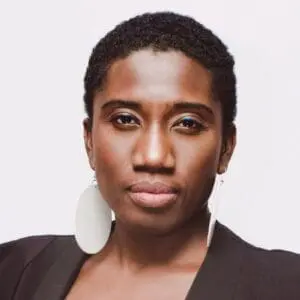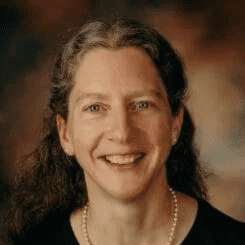We wouldn’t be good therapists if we didn’t care about our clients. But beyond a warm greeting and an offering of effective clinical strategies, how do we express our genuine affection for the people we help without crossing ethical boundaries? Four therapists let us in on how they walk the line.
The Keeper of the Small Stuff
All good therapists hold space, remember the names of the important people in our clients’ lives, keep appointment times sacred, and maybe offer a little coffee or tea to start a session. Beyond that, I think we really show clients we care when we remember small details about their lives that may not even be relevant to whatever clinical issue we’re exploring.
Recently, a client I’ve known for almost two decades, was struggling with the death of his father. Since we’d started working together when he was a teen, I’d had a lot of contact with his father. When he died, I shared a joke the dad had told me 12 years ago. My ability to hold onto those memories and share them these many years later felt like a special moment for us.
Another client, a successful touring musician, once admitted she loves playing video games. I know nothing about gaming, but recognizing this part of her that exists beyond her extremely cool public persona conveys a level of caring that no amount of outside recognition can offer.
Boston, MA
Caring Is Reciprocal
It’s not an exaggeration to say that I’ve cared about all my clients—and loved many of them. Early in my career, I worried that the loving part was inappropriate and even consulted my brother Steven Solomon, who runs The Relationship Institute, about it. “I care about clients too,” he assured me. “And I tell them so. I let them know that I need to care about them to best be of help, and I hope they’ll learn to care more about themselves, too. I then urge them not to do anything to hurt this person that I care about.”
Ultimately, I’ve come to believe that remaining “a blank slate for therapy clients, as we’d learned to do in our training, imposes a white, mostly male lens on what is, at its core, a caring, reciprocal relationship. Maybe I’d feel a different calculus around this if I was male. But I’ve gone ahead and told clients that I’ve kept them in my thoughts outside the therapy room. Sometimes, after careful consideration and years of working together, I’ve even told them I loved them. It was always true, and it served the therapy for them to hear it.
Portland, OR
Discovering What Matters Most
Like many clinicians, I entered a “helping profession” to do just that: help. Over years of interacting with clients, teachers, students, and life itself, my understanding of what truly does help has evolved.
A protocol I created during my doctoral dissertation focused on clients who’d experienced complex trauma. As they went through treatment, we measured their changes quantitatively and discovered a range of ways in which treatment worked. But the qualitative measures were the most revealing. When asked what the most helpful element of their treatment was, every client’s answer contained the same theme: feeling cared about.
It was often simple things that I did that clients said showed that I cared. Staying a few minutes past the end of the session when they were processing trauma. Returning a call or message promptly. Talking to them about their daily lives or asking their opinion and really hearing the answer. They also felt cared for when I laughed at their jokes, or remembered details about their pets, children, or interests.
Of course, session content that teaches skills and expands perspectives and flexibility is essential to good care. But suggestions for change seem best accepted and integrated when clients feel our care.
As one client put it, “I don’t always remember what you told me, but I remember that you care and that talking to you helps me feel better. That’s why I look back at the notes we made about what to do when I get stuck.”
Amity, OR
“My Healing Looks Different”
I’ve learned over the years that we can best help our clients when we make it clear that whatever their healing journey looks like, and however long that journey takes, we’ll continue to care deeply about them.
I expressed this to a 25-year-old Black bisexual client early in our therapy relationship. She lived with intense anxiety and dissociation, and when she first met me, her healing wasn’t progressing. She believed no therapist could truly meet her where she was at.
In our first session, we untangled the web of self-criticism that surrounded her notions of healing and progress, then we crafted a new understanding of how her healing path may differ from ones who hold privilege in the world. As part of this, she began a practice of repeating the self-loving phrase: “My journey is mine, and that’s okay! My healing looks different, and that’s okay!”
In a journal, she logged behaviors that would be traditionally defined as regression, resistance, and self-sabotage. Then together, we examined how they were her body’s way of fighting to heal in the face of constant discrimination, prejudice, and systemic harm. They were part of her path, not a deviation from it.
Repeatedly, she told me she finally understood that she deserved the tenderness that we were both giving her.
Trinidad and Tobago
Christopher Willard
Christopher Willard, PsyD, is one of the world’s leading experts on mindfulness with young people, having trained thousands of professionals and young people on the practice and benefits of mindfulness. He is a psychologist and consultant based in Boston, working individually as well as consulting to schools, hospitals and other organizations. Additionally, he is the author of multiple books on psychology, child development, contemplative practice and more. Dr. Willard is the president of the Mindfulness in Education Network and serves on the board of directors at the Institute for Meditation and Psychotherapy. In addition to serving on the faculty of Harvard Medical School, Dr. Willard leads courses and workshops around the world and online. Dr. Willard is the co-author of The Mindfulness Skills Activity Book for Children (PESI, 2018), and the author of Child’s Mind (Parallax Press, 2010), Growing Up Mindful (Sounds True, 2016) and numerous others. He is also the co-author of the bestselling Growing Mindful (PESI, 2015), Growing Mindful 2nd Edition (PESI, 2019), Growing Mindful Spanish Edition (PESI, 2016), Growing Happy (PESI, 2016), Mindful Reminders (PESI, 2016), The Self-Compassion (PESI, 2016) and Anti-Burnout (PESI, 2017) card decks.
Diane Solomon
Diane Solomon, PhD, is a writer, nurse-midwife, psychiatric nurse practitioner, and adjunct professor at Oregon Health and Science University. Specializing in well-being, women’s mental health, and adult psychiatry, she’s written about psychological health across the lifespan for Psychology Today, HuffPost, The Gerontologist, BMJ Supportive and Palliative Care, and others.
Akilah Riley-Richardson
Akilah Riley-Richardson, MSW, CCTP, is the founder of the Relational Healing Institute, and creator of the PRIDE model of practice and supervision. An individual and couples therapist and certified trauma specialist, she’s dedicated to the healing of BIPOC relationships and BIPOC mental health. Learn more at akilahrileyrichardson.com.
Shawn Criswell
Shawn R. Criswell, PhD, LPC, is a Pacific Northwest native with a lifelong passion for learning, collaborating, and helping. For over 30 years, she has provided clinical care, frequently utilizing clinical hypnosis in her work. She also offers consultation and training to healthcare professionals locally and internationally. For more information, visit: drshawncriswell.com.















